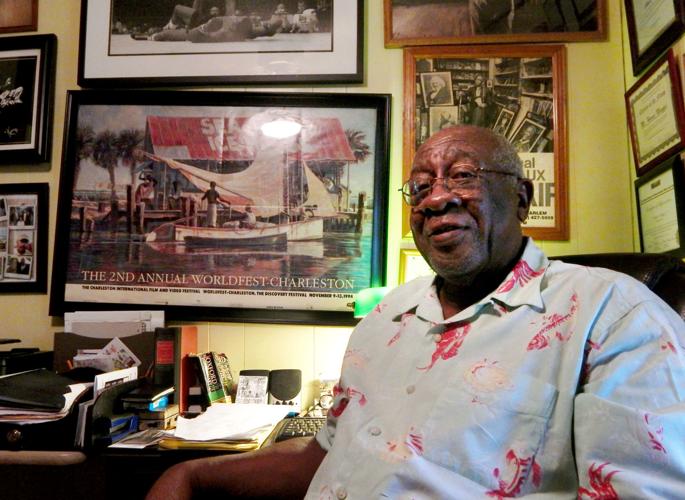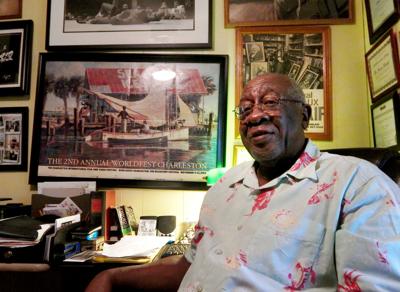Horace Mungin, a Hollywood native and Givhans resident who wrote many short books about life in America, especially aspects of the African American experience, died Saturday. He was 80.
His friend Herb Frazier, who has been co-editing with Mungin a new volume of essays about race for Evening Post Books, confirmed the death. Mungin had been diagnosed with lung cancer in 2017.
He left South Carolina at age 5 when his family moved to New York City. He spent part of his childhood in Harlem and, beginning at age 9, in the New Amsterdam Houses on the West Side of Manhattan — the old San Juan Hill area, which had been a stomping ground for Black artists and entrepreneurs during the first part of the 20th century.
As a teenager he discovered books, obsessed about basketball and jazz, and dreamed of playing the flute but never quite mustered the commitment to become good at it.
At 18, he joined the Army and served three years even though he hated the service was still largely segregated. The experience led him to write an article he titled “The Long Arm of Segregation.”

Horace Mungin was part of the 82nd Airborne Division in the early 1960s and served in Bamberg, Germany. Provided
After his military service, Mungin dove head-first into poetry and kept writing essays and monographs, all informed by life experiences. He immersed himself in the Black Arts Movement and volunteered for anti-drug campaigns in New York City. Starting in 1968, he took a job with the Metropolitan Transit Authority driving subway trains.
He met Gussie, the woman who would become his wife, on the day President John F. Kennedy was assassinated. They married the following year.
Mungin reveled in the pleasures of reading (he loved the Russian novelists, and the stories of Isaac Bashevis Singer) and the craft of writing. During the first part of the 1970s, he edited the magazine “Black Forum.”
In 1989, he retired from the MTA and returned to South Carolina. He and Gussie moved into a house he had built for them in Givhans, near Ridgeville, where Mungin liked to tend his vegetable garden.
Since then, he had doubled down on his writing. He became a fixture of the Black Ink book festival in Charleston, an event featuring African American authors and their work.
“He’s really passionate about a wide range of subjects,” event co-organizer Steven Hoffius told The Post and Courier in 2018. “Partly because of his age and experience, he’s really wise. It makes him important for Black Ink. He’s kind of a mentor for new authors.”
In 2020, Evening Post Books published Mungin’s latest volume of poetry called “Notes from 1619.”
“Horace was a bridge to help create understanding between White and Black people,” said Michael Nolan, editor of Evening Post Books. “He believed that by increasing knowledge, people could come to a better place.”
His last project, a collection of writings co-edited with Frazier, is titled “Ukewli: Searching for Healing Truth, South Carolina Writers and Poets Explore American Racism.” It is scheduled to be released the first of part of next year.
Frazier said the book is an outgrowth of the Ukweli program Mungin organized for McLeod Plantation, which involved public readings and presentations. The two men decided at the end of 2020 to expand the project to include more writers and produce a book. It came together quickly, and Mungin was able to see the first draft of the volume before his death.
"One of his last comments to me when he called me on Sept. 18 was, 'Take care of our project,'" Frazier said.
The Serenity Mortuary is handling arrangements. For information about funeral services, go to https://www.serenitymortuaryinc.com/obituary/MrHoraceLee-Mungin.












